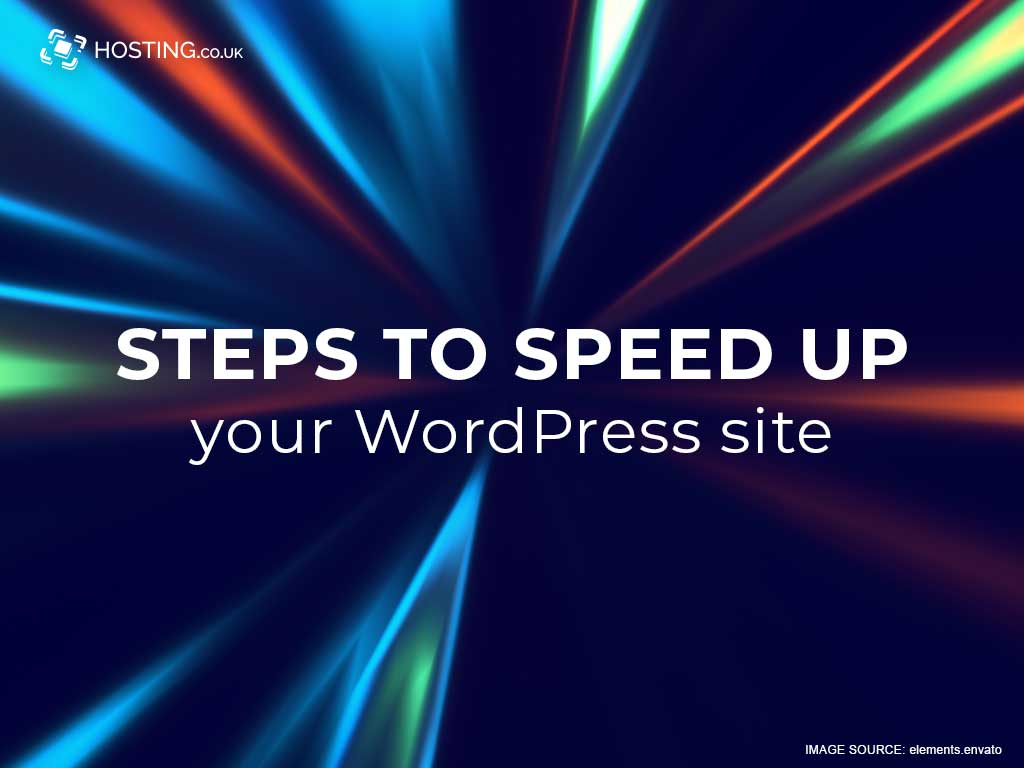WordPress makes it easy to create a stunning, interactive website, even if you’ve never made a website in your life. But the more features you add to your WordPress site, the bulkier and slower it gets. And a slow website is lethal to your SEO, because there’s nothing that visitors hate more than a slow-loading website.
The good news is that there are lots of things you can do to speed up WordPress. Let’s get into them!
Table of Contents
7 Steps to speed up WordPress
1. Get good web hosting.
Good WordPress hosting is the most important way to speed up WordPress. All your other efforts to speed up WordPress will be in vain if your web host has stuck your website on a slow server. Look for web hosting that caters specifically to WordPress users. This is the best way to ensure that your storage space and bandwidth are optimal for the particular needs of your WordPress site.
If you choose shared hosting, your WordPress site will have to compete with many other websites for server resources. A more robust hosting package like VPS hosting will ensure that your WordPress site has all the resources it needs to keep running at optimal speed.
2. Use a CDN.
Here’s something that most people don’t know about running a WordPress site (or any site at all, really): Your website’s speed is affected by geographical location.
The farther your visitors are from your web servers, the more slowly your WordPress site will load for them. When you use a CDN (Content Delivery Network), you help speed up WordPress for all your visitors.
That’s because a CDN is a network of servers spread all around the world. Each of these servers stores a static version of the files that make up your website. When a user visits your website, the CDN serves your website to them from whichever server they’re closest to. This ensures that your WordPress site is lightning fast, no matter where your visitors are!
3. Remove unnecessary plugins and themes.
The more plugins and themes you have, the more slowly your WordPress site will load your webpages. The easiest way to speed up your WordPress site is to deactivate and delete and plugins you don’t need.
Once you’ve done that, you’ll notice a huge boost in speed.
If you want to speed up WordPress even more, you can then disable plugins one by one to check if any plugin is inordinately draining to your site speed. If you’ve found a particularly plodding plugin, remove it and watch your site zip by!
Do the same for your themes. Some themes are speedy, and some themes are slow. Remove the ones that drag down your site speed (and your SEO).
4. Use page caching
WordPress webpages are dynamic. This means that instead of being stored on the server exactly as they’ll be delivered to your visitors, each page on your WordPress site is built from scratch every single time a user requests it.
A page caching tool turns your dynamic WordPress pages into static files. You can think of “static” as the opposite of “dynamic”, because a static webpage is pre-built and stored on a server exactly the way it will be delivered to your visitors. This saves time, because instead of retrieving lots of files from the server and combining those into a webpage that will be different for each user, depending on when they visit the webpage, all the server needs to do is retrieve the cached webpage and present it to your visitors!
5. Optimise your images.
Images invigorate your content and make it more likely that your visitors will stick around. But the bigger your images, the slower your website.
To optimise your images, use a compressed file format like JPEG. This file format is smaller in size and easier to load.
6. Reduce external HTTP requests
Lots of WordPress plugins load files from other websites. These external HTTP requests can include scripts, images, or stylesheets. You don’t need to cut these out completely but try not to have your plugins making too many of these requests, or your website will crawl along at a snail’s pace.
7. Use the latest PHP version.
Using an outdated PHP version is a sure-fire way to slow down your website. If you’re not using the latest PHP version, ask your web host to update it for you, so your WordPress site can zip along with the best of them!
The Takeaway
A speedy website is crucial for your SEO. If your WordPress site is being sluggish and stubborn, use the tips in this guide to put some extra pep in its step!
